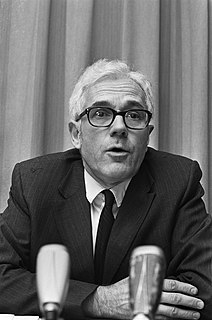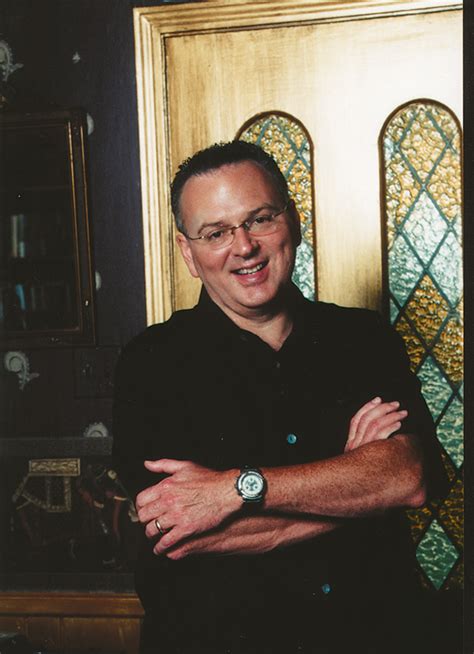A Quote by William Butler Yeats
You know what the Englishman's idea of compromise is? He says, Some people say there is a God. Some people say there is no God. The truth probably lies somewhere between these two statements.
Related Quotes
We may have created this projection of what God should be, as this judge or test, but the fact is, the only way we know about God is by knowing ourselves in some way. So God must be in ourselves-you can't deny that. If you say that God is somewhere else, which is what a lot of religions say, I just can't deal with it. I guess it's the difference between Buddhism, Christianity, and Judaism, or something.
The atheist does not say 'there is no God,' but he says 'I know not what you mean by God; I am without idea of God'; the word 'God' is to me a sound conveying no clear or distinct affirmation. ... The Bible God I deny; the Christian God I disbelieve in; but I am not rash enough to say there is no God as long as you tell me you are unprepared to define God to me.
How you ask for help is secondary to the fact that you ask for help. Some people say, "I am going to command God for help." Some people say, "I want to affirm that God help." Other people prefer prayers of supplication, in which they implore, "Please, God, help me." It all works. It doesn't matter whether you say the prayer out loud, think it, yell it, scream it, write it, sing it - it's all the same.
People are invariably surprised to hear me say I am both an atheist and an agnostic, as if this somehow weakens my certainty. I usually reply with a question like, “Well, are you a Republican or an American?” The two words serve different concepts and are not mutually exclusive. Agnosticism addresses knowledge; atheism addresses belief. The agnostic says, “I don't have a knowledge that God exists.” The atheist says, “I don't have a belief that God exists.” You can say both things at the same time. Some agnostics are atheistic and some are theistic.
I have good idea, for if you meet some person from different religion and he want to make argument about God. My idea is, you listen to everything this man say about God. Never argue about God with him. Best thing to say is, 'I agree with you.' Then you go home, pray what you want. This is my idea for people to have peace about religion.
We must see the face of the Lord .... There are things that God says to me that I know must take place. It doesn't matter what people say. I have been face to face with some of the most trying moments of men's lives when it meant so much to me if I kept the vision, and if I held fast to that which God had said. A man must be in an immovable condition. The voice of God must mean to him more than what he sees, feels, or what people say.
I stay around for two or three hours after every show signing and taking pictures with everybody, and people come up and say hi and they say, "I didn't know what to expect but it was so different to what I imagined, it was so cool". I want to believe they're not lying. You know so, some people don't get it, some people do.
The concept of God can be very interfering for some and very opening for others. There are many people who say it's not God, or a personal God, but it's an energy, it's a force, it's a unifying conceptualization of the universe. For some people it can be a very positive, and a beneficial way of looking at things. But then for others it can get in the way. It depends to a large extent on how one defines what God is especially if it becomes exclusive and a hate filling definition.
The difference between the truth of God and revelation is very simple. Truth is where God's been. Revelation is where God is. Truth is God's tracks. It's His trail, His path, but it leads to what? It leads to Him. Perhaps the masses of people are happy to know where God's been, but true God chasers are not content just to study God's trail, His truths; they want to know Him. They want to know where He is and what He's doing right now.







































